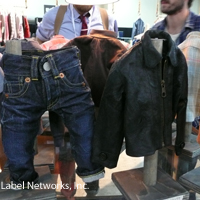
Giant social networks continue their scramble to create some sort of meaningful business model out of all of the millions of viewers on their sites for which they paid millions, and so they continue to go after what seems like a lucrative solution: music. Having realized that there’s really no money in selling ads on a wide social network and that it’s no longer an eyeballs game (millions of users do not equal millions in revenue), and having watched Apple’s iTunes practically own the music buying industry, Google, Facebook, and MySpace have all announced another set of plans to get in on the action -and most of this is backed by the record industry, which has also lost revenue as traditional sales of music declines. What they all need is an actual product to sell and an audience that’s willing to buy it, which changes the equation of quality of users vs. quantity. (By the way, Twitter has the same problem of no-business-model, but watch them tap music soon also.)
The only game in town right now is people stealing marketshare from Apple. The biggest problem that each of the social network behemoths have is that they will have a hard time beating Apple because Apple owns a device that a majority of people listen to music on. All they can sell is MP3’s and formats of music on a device that can take this.
In addition, record companies have slowly become more irrelevant as more people turn to the Internet to find new music, as we quantified in our Music and Technology section from our Fall Study 2009. Record companies don’t own the technology, and grassroots promotions via YouTube clips, MySpace, and word-of-mouth by fans and bands are what’s building bands now, as indicated by our last Study based on the question of where 13-25-year-olds are finding out about new music mostly.
Last year, Vivendi’s Universal Music Group, Sony Music, Warner, and EMI got together with Google to create a solution. They thought of a search engine for music and artists in their attempts to grab marketshare from music sales on Google and to try and get around the Apple monopoly in terms of music sales. Starting next month, Google is launching a music search which will include record companies’ videos, news content, interviews with bands, lyrics, and songs which fans can buy directly off Google music search. The new Google music search is filtered so instead of getting a plethora of stories and tangents from searching for specific music like you would in the past, on the new Google music search, you’ll only get everything associated with that band only. This is what will come to the top because Google owns the search and can direct this to be at the top.
Interestingly, song previews and sales will come from online music retailer Lala and iLike, which was bought by MySpace just this month for $20 million. (Google owns the ad relationships of MySpace). Google will make money from ads on music search results and record companies will get a cut of music sales from Google search via iLike.

Topline chart from Label Networks%uFFFD North American Youth Culture Study 2009–Music and Technology section
When it comes to MySpace, they quickly realized that they too, couldn’t make money off their millions of users and had to find a revenue stream and therefore turned to music by launching MySpace Music. It has been relatively successful but nothing near Apple’s iTunes success. What they’re trying to do now, with buying iLike, is to tap into the music marketshare and Facebook. iLike has been a popular Facebook application. iLike uses YouTube videos in its application, which is owned by Google. In our data, the number one location that youth culture in North America are watching music videos is YouTube at 77.7%. So, getting a piece of YouTube is obviously important for social networks and record companies. MySpace wants a piece of this, and Google, which owns YouTube, wants to make this into a revenue stream.
With iLike, MySpace Music service will be playable via iLike applications that are on competing networks such as Facebook, Bebo, Orkut, and hi5. (Ads in the MySpace Music will benefit MySpace, plus they’ll get a cut of music sales.) In addition, you can also buy the songs also via iTunes or Amazon.com from which MySpace Music gets a fee because you’re going through their application.
Starting on Thursday, October, 22, Facebook has new little application called Lala which allows people to give the gift of music -you buy a friend a song for 10 cents via Lala in an MP3 format and send it to them. While this may seem low-cost, it adds up fast if people are sharing a lot of music. For Facebook, their play is making money by people sharing music via Lala.
Which comes back to the music industry. Record sales were again down, as reported this week. People are still obtaining music for free as a majority. What’s happening is that many new bands are willing to give their songs away for free to get noticed and make money via touring. The problem now is that on the flip-side of music sales decreasing, every band is touring and there’s a glut of bands on tour. Live Nation, for example, is offering 10-dollar ticket sales each Wednesday just to get people to shows (where they make money off of parking, ticket fees, drinks, food since they own many of the venues).
Just this month, the Smashing Pumpkins announced that with their next album, they will give all of their songs away for free -one song at a time for 40 different tracks in total. These things have worked for many popular bands. For example, when Radiohead said bid what you can for our music and made money without a record label involvement. Or when Trent Reznor from Nine Inch Nails gave music away for free and then did a massive tour from which they made money on ticket sales, merch, etc. Their music was a marketing tool for their tour, vs. the other way around. And they profited greatly.
Which comes back to social networks trying to make money off of music. Google, MySpace, and Facebook’s plans may tap into Apple’s iTunes monopoly, but when you have musicians also doing it for themselves, and creating their own successes, then there’s only so much of the pie to go around.


